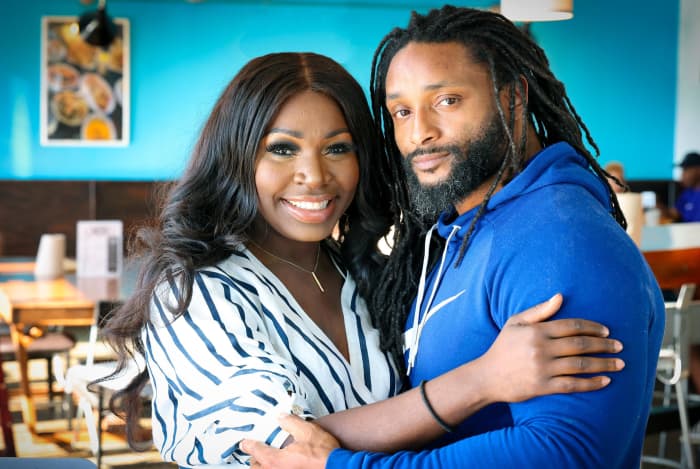This post was originally published on this site
As COVID-19 cases surge throughout the U.S., a growing number of dining and drinking establishments are turning unvaccinated customers away, saying their businesses can’t risk possibly exposing patrons and staff to the virus.
But these “No Vax, No Service” decisions have sparked controversy, with anti-vaccination groups and individuals saying they constitute a violation of civil rights. Some states, such as Florida and Texas, have also enacted laws that essentially prevent private businesses from imposing these bans on the unvaccinated.
The bars and restaurants putting the vaccine requirements in place range from individually owned ones to small chains. In New York, prominent restaurateur Danny Meyer, who heads the Union Square Hospitality Group, announced Thursday on CNBC that his company, which owns the fast-casual burger chain Shake Shack
SHAK,
would be insisting that patrons who want to sit inside be vaccinated.
“This is the most logical thing I’ve ever seen,” Meyer said. “I’m not a scientist, but I know how to read data and what I see is that this is a crisis of people who have not been vaccinated, and I feel strong responsibility, on our part as business leaders, to take care of our team and our guests, and that’s what we’re doing.”
In San Francisco, a local bar-owner organization representing more than 300 establishments, announced Monday that it’s calling for bar customers to show proof of vaccination or a negative Covid-19 test to enter bars. Patrons who don’t meet the requirement will be allowed to sit outside at local drinking spots.
Ben Bleiman, president of the SF Bar Owner Alliance and a bar proprietor himself, said it is hard to ignore the fact that Covid-19 can easily be spread by unvaccinated individuals. So, at a time when there is a dramatic rise in cases, the ban is simply necessary, he added.
“It seems to be the easiest and fastest way to protect” people, he said.
“
‘In theory, a restaurant can say, ‘We’ll only allow you in if you’re willing to put a clown nose on your face.”
”
City Winery, a national bar and restaurant chain that offers live music by prominent artists at its venues, already had a vaccine requirement in place for its New York City location. But after surveying its customers throughout the country over the past few days via email, it has decided to extend the requirement at all its establishments starting next week, said City Winery founder and chief executive officer Michael Dorf. Those who are not vaccinated can show proof of a negative Covid test, he said.
Dorf noted that more than 75% of customers who responded to the survey supported the vaccine requirement. He also said that when he is at his New York City venue and talks to those on hand before a performance about the issue, he gets a standing ovation.
Establishments that have required vaccines often face pushback, if not crowds of protesters, from those opposed to such restrictions. A case in point: Argosy, an Atlanta gastropub, has seen strongly negative reaction on social media to its “No Vax, No Service” policy, including a Twitter
TWTR,
post from Georgia U.S. Rep. Marjorie Taylor Greene, a Republican.
“This is called segregation,” Greene wrote. “Will you be testing everyone at the door for the flu, strep throat, stomach bugs, colds, meningitis, aids, venereal diseases, Hep A, Hep C, staff infections, athletes [sic] foot, pink eye, croup, bronchitis, ringworm, scabies, or any other contagions?”
Greene didn’t respond to a request for additional comment. Argosy staff also didn’t respond.
Restaurants and bars have legal latitude
Questions have been raised as to whether vaccine requirements for entrance into a business are legal. But lawyers versed in matters involving civil liberties and medical issues say that private businesses have a degree of latitude when it comes to imposing certain restrictions, especially when they involve health and safety.
In fact, businesses can ban customers for seemingly lesser concerns, legal experts note. Examples include the beachfront restaurant that requires patrons to wear shoes and shirts and the fine-dining establishment that makes it mandatory for men to sport suit jackets.
“In theory, a restaurant can say, ‘We’ll only allow you in if you’re willing to put a clown nose on your face,’” said Dorit Rubinstein Reiss, a professor at the University of California Hastings College of the Law and an attorney who is a widely recognized specialist in vaccine law.
Michele Bratcher Goodwin, a professor of law the University of California at Irvine and founding director of the Center for Biotechnology and Global Health Policy, raises another point: If businesses don’t put vaccine requirements in place, they potentially open themselves up to a liability case if a customer or staff member becomes sick from being exposed to an unvaccinated individual.
“The last thing you want to be hit with is a wrongful-death lawsuit,” said Goodwin.
Of course, countless bars and restaurants throughout the county have no vaccine requirements. And for many, it is a matter of principle not to place restrictions on their customers.

Quinisha Bredwood, left, owner of Q’s Crackin Crab & Seafood Kitchen, a restaurant in Cocoa Beach, Fla. with her husband Anthony Bredwood. “It’s an individual’s choice to decide what they want to put in their body,” Quinisha Bredwood said.
Photo by Steven Hicks/SCL
Quinisha Bredwood, owner of Q’s Crackin Crab & Seafood Kitchen, a restaurant in Cocoa Beach, Fla., is among those who say businesses shouldn’t be regulating vaccinations. As it is, Florida law won’t allow Bredwood to impose a vaccine restriction, but the restaurateur, who said she has been vaccinated herself, holds to her view either way.
“We feel like it’s an individual’s choice to decide what they want to put in their body,” she said.

